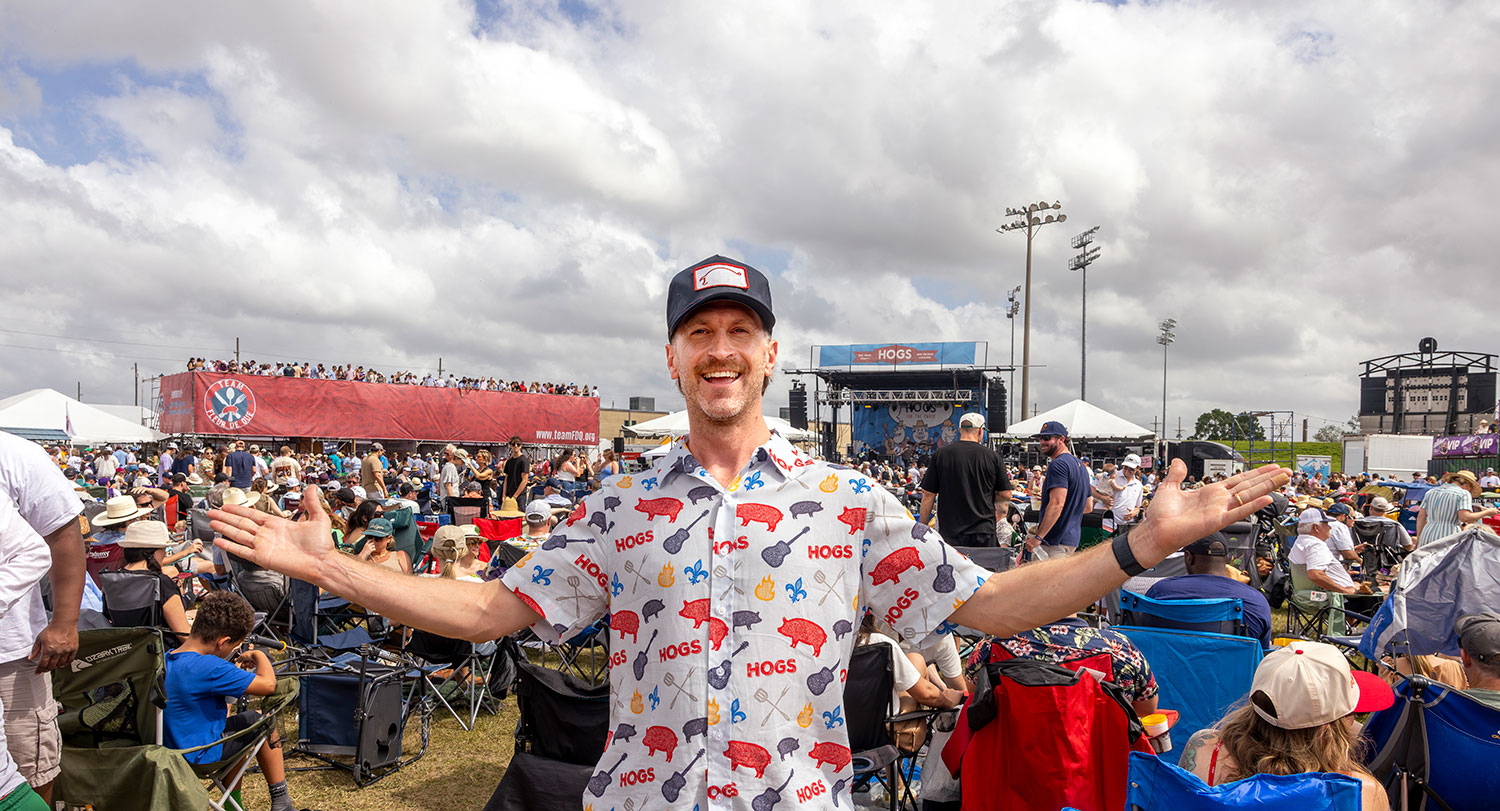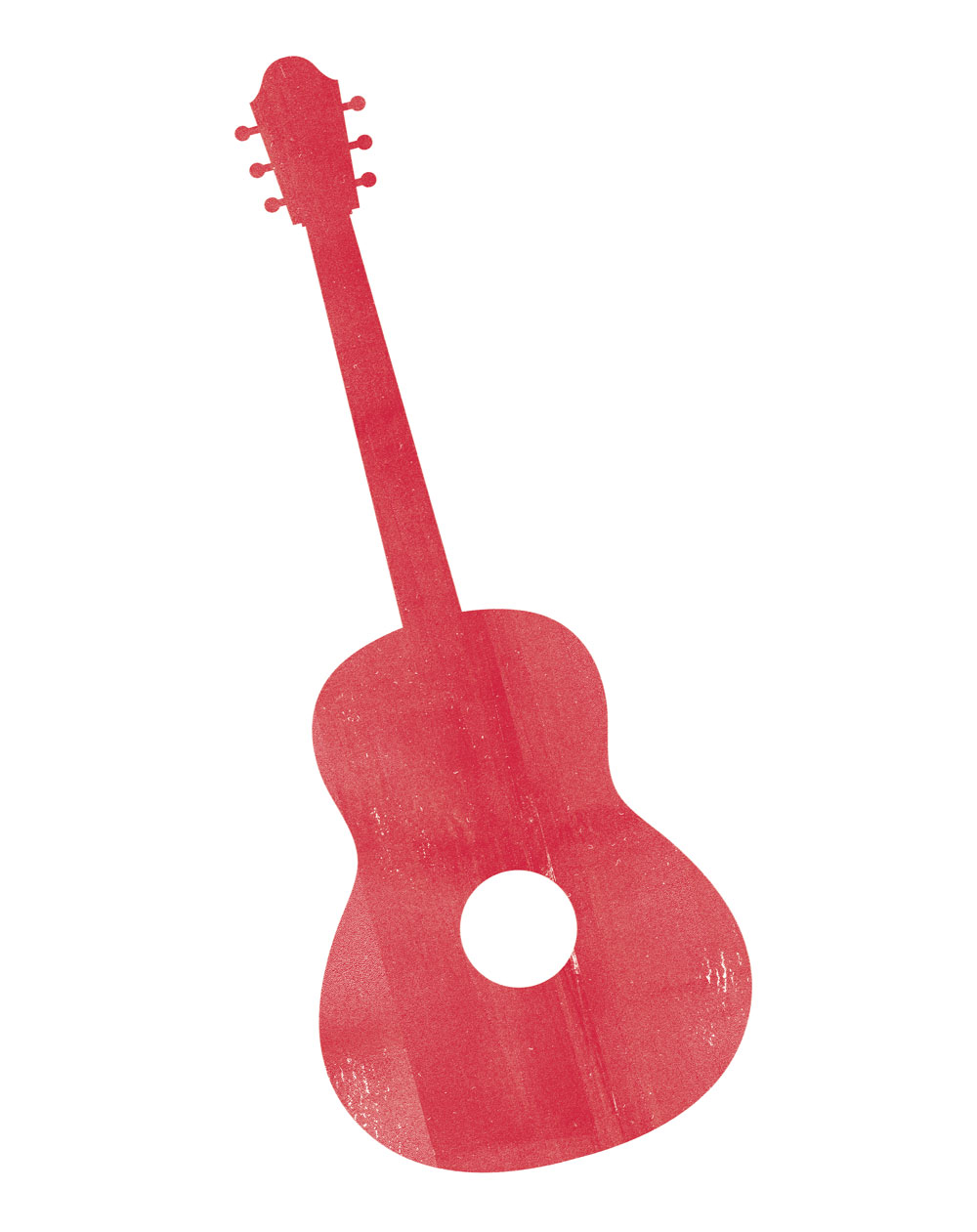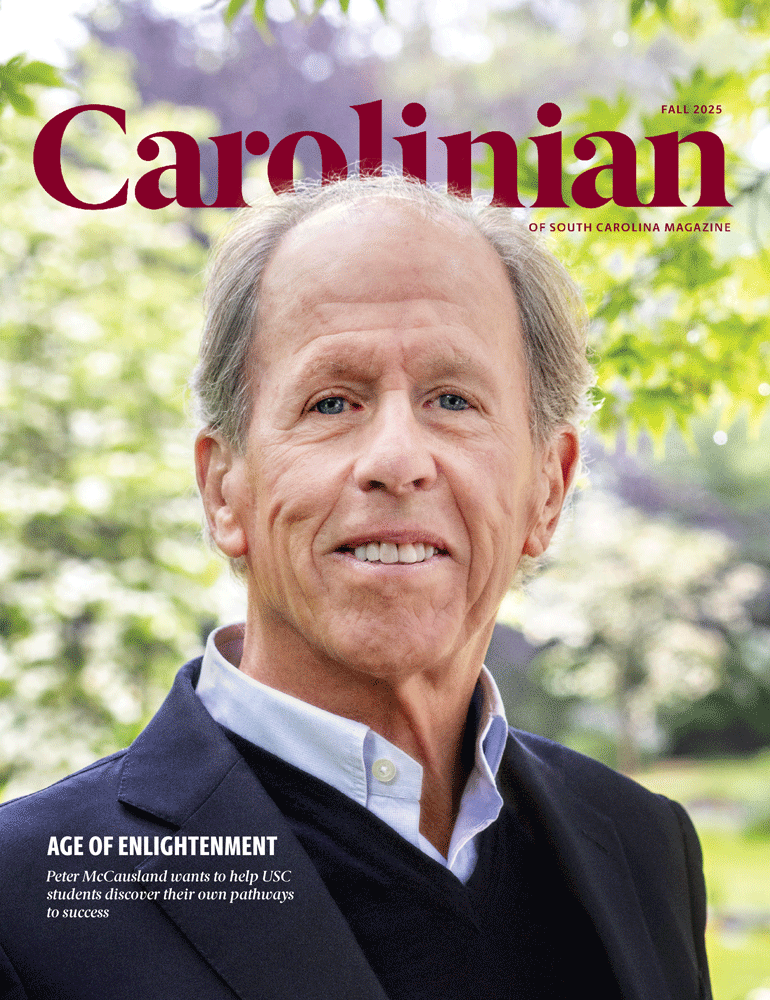Becker Hall is living out of a trailer. He’s drinking Miller High Life ponies and sleeping in a narrow bunk. It’s not glamorous, he misses his own bed, but when you’re running a three-day music and barbecue festival, you need to be near the action.
Make no mistake: Hall is having a blast. He started booking bands as an undergraduate at the University of South Carolina, and he’s been planning concerts, festivals and events ever since. He’s in his element. Anyway, as the CEO of a New Orleans-based nonprofit that supports families of children facing pediatric brain cancer, he can’t sweat the small stuff.
The “cause” in Hogs for the Cause is a serious one — brain cancer is the deadliest childhood cancer in the U.S. — but once the festival starts, it’s laissez les bon temps rouler. And Hall has been letting the good times roll since Day One.
“When we first decided to become a full-fledged festival, we googled ‘how to throw a festival’ and then we bought a guidebook by a guy from Australia,” he jokes between sips off his beer. “But we’re at least smart enough to see what we’re doing wrong. We’re good about, ‘If something goes wrong, fix it quickly, or can it.’”
An hour ago, he was rejiggering the band schedule after a last-minute cancelation. Before that, he was tying down festival tents in 35 mph gusts off Lake Pontchartrain and helping a guy from the power company decide where to bury cables. In between, he has been greeting pitmasters from around the country as they pour into the University of New Orleans Festival Grounds, smokers in tow.
Hogs for the Cause is a big deal. The annual festival is just one weekend in early April, but running the charity is a full-time, year-round gig. It’s not The Becker Hall Show — his cofounders, friends and festival volunteers do their share of heavy lifting — but the former sociology major more than pulls his weight.
When he’s not lining up national acts, he’s challenging barbecue teams to raise more money. When he’s not networking with hospitals and health care workers in Louisiana, he’s traveling the country to expand the nonprofit’s reach.
And the efforts have paid off. Since 2009, Hogs for the Cause has delivered nearly $3 million in direct grants to families. They’ve given out more than $14 million to charities and hospitals nationwide, including a $1 million gift to PRISMA Health Upstate, in Greenville, South Carolina, which opened a pediatric hematology and oncology wing this summer. More recently, the charity announced major gifts to establish similar facilities in Tennessee and Colorado.
They also run a Hogs House in New Orleans, and another in Baton Rouge, where families can stay while their child is receiving treatment for brain cancer or other serious medical issues. They’re currently building a third Hogs House in Florida.
And the festival is the charity’s signature fundraiser. Over the weekend 40,000 people will pass through the gates. Their 2025 fundraising goal, which they announce at the Captain’s Meeting in the morning, is $5 million. The barbecue teams, which raise serious money just for the right to compete, leverage their social media to push the tally over the top.
Hall doffs his trucker’s cap to the pitmasters, judges and vendors who make everything run smoothly, and he is just as grateful to the bands and the fans who give the festival its energy. He also acknowledges his luck — and the role his alma mater played in preparing him to succeed.
“It was just good timing, the right idea at the right time,” Hall says. “But it wouldn’t have happened if it wasn’t for a lot of what happened in Columbia and at USC. I think I would still have been searching.”
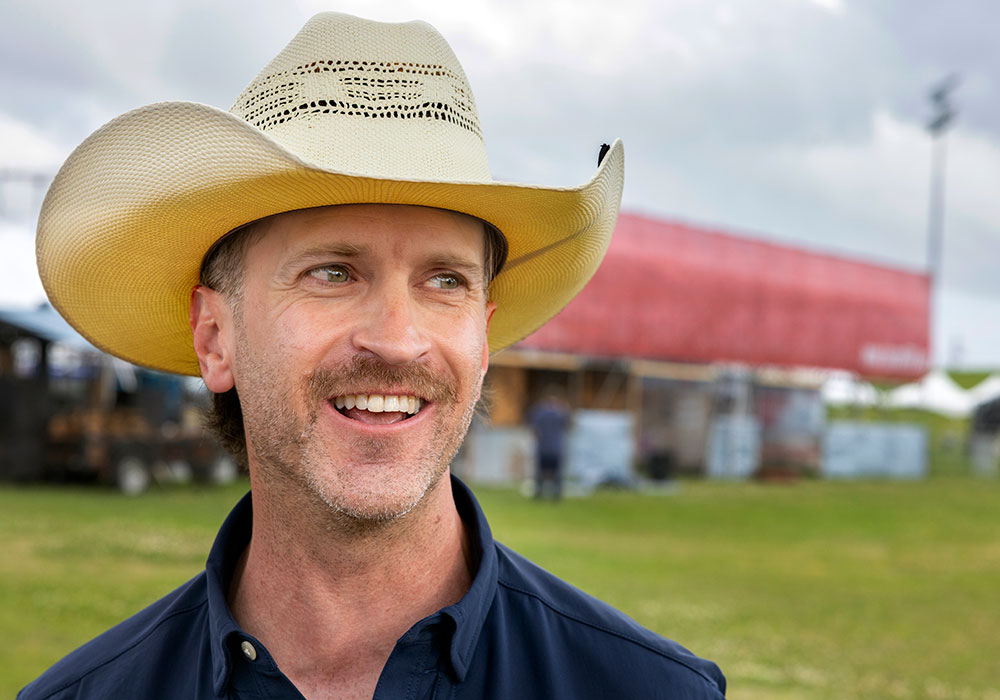
College came at a difficult time for Hall. He graduated from a Jesuit high school in New Orleans — “very strict,” he says, “very regimented” — and he was ready to spread his wings. But something was also pulling him back: His mother was going through breast cancer treatment, and the prognosis wasn’t good. Maybe he’d stick close, he thought. LSU was only an hour up I-10.
“And I really wanted to go to LSU,” he says. “All our family went to LSU. They were athletes at LSU. It’s in our blood.” Except Mom and Dad had other ideas. “My parents were like, ‘You’re not going to LSU. You have the opportunity to go out-of-state and live on your own. Go get that experience.’”
A year later he was toughing it out in the old Honeycomb dormitories — Snowden, to be exact — trying to acclimate, and not just to dorm life. “Things slowed down, time slowed down,” he says. “I felt like an outsider a little bit. I had to sit on the wall and watch for a while. People told me, ‘You’re a little quiet.’ And I was at first. I had to figure out where my play was.”
Lots of college students find their scene through Greek life. When Hall pledged Sigma Chi he found something more. He didn’t know it yet — the nonprofit world was a distant horizon — but thanks to a tailgate tradition, he discovered a key building block for what would one day become Hogs for the Cause.
“All the fraternities smoked whole hogs before every football game, and I thought it was the coolest thing. In New Orleans, we didn’t have that,” Hall explains. “We had guys that came to USC from small towns like Lancaster and Moncks Corner, and they really knew their way around a pig. They were also really good about doing the four sauces of South Carolina. Each quad of the pig would be different: mustard, vinegar, light tomato, heavy tomato.”
But he didn’t muscle in. The experts handled the serious stuff. Hall stayed up through the night, beer in hand, watching the sparks whip off the coals in the autumn breeze, absorbing a new culture. “I could beat your best night watchman,” he says. “And you need a good night watchman when you’re cooking the whole hog.”
Hall moved back to New Orleans after graduation and started working in finance. It wasn’t the most satisfying career, he says, but he liked being home, reconnecting with family and childhood friends. Sometimes, his old college buddies came out to visit, too.
That was the situation when Hall and a few friends attempted to cook a suckling pig for a party at The Fly, a riverside stretch of Audubon Park. Hall’s close childhood friend Rene Louapre procured a 30-pound pig from prominent New Orleans chef Donald Link for the occasion.
Louapre was an attorney by day but also a food blogger covering New Orleans famous dining scene. Hall had spent all those night’s back in South Carolina watching the coals and taking mental notes while his fraternity brothers handled the hog. “If they can do it, why can’t we?” Hall reasoned. “That’s my theory on everything.”
And done right, the suckling pig should have come out excellent. Done their way, tied to a spit at 3 a.m. with barbed wire, bravado and limited actual know-how, it came to a safe temperature and that was about it.
“People were walking in circles, we didn’t know what we were doing, but it was educational,” says Hall. “I mean, you learn from everything, right?”
“I wanted to do something fulfilling.”
The fiasco at The Fly may not have yielded the best barbecue, but it was hardly a lost cause. They didn’t just learn how not to roast a pig; they had fun. They also hatched the idea for what would soon become Hall’s life’s work.
“Originally, we were just going to throw a party South Carolina style, like a tailgate, and invite all our friends,” says Hall. “But then we had just learned about this kid named Ben, the son of local sous chef, who had an inoperable brain tumor. So we said, ‘Let’s just pass the hat around’ — and we raised $7,500. For a group of 25-year-old kids we were like, ‘Yeah, cool. We did a good job. We did a good thing.’”
And then they met Ben. The 8-year-old hadn’t been able to make the barbecue at The Fly. He was on his Disney Make-a-Wish cruise. But six months later, Ben’s dad invited Hall and Louapre to meet the boy at his dad’s restaurant.
At that time, Hall was still thinking about his own family’s cancer story. His mother’s breast cancer had recurred five times before she finally passed, and as he and Louapre headed over to meet the boy, he had a heavy heart and a lot on his mind.
“I remember it like it was yesterday,” says Hall. “He sensed something in us, I don’t know what. He was just telling jokes the whole time, wasn’t shy at all. He was just a natural showman, like ‘I want to make these guys laugh. These are my buddies.’ Rene and I, we were both like, ‘How was this kid trying to make us feel better?’”
It was a lot to take in. Ben was never going to enjoy the kinds of experiences they’d enjoyed growing up. On top of that, the boy’s family was facing overwhelming medical expenses.
“It’s what they call financial toxicity, when you basically go bankrupt from medical bills. Meeting him, seeing what his family was facing, that just pounded us. We felt like, ‘We have to do something. This is not right.’”
Hall and Louapre decided then and there to do an encore the next year. Link supplied another pig, and they set up, once again, on The Fly. Year Two, they added the barbecue competition — and 25 teams signed up almost immediately. “We learned really quickly that we shouldn’t be doing the cooking,” Hall says. “So we decided, ‘Let’s Tom Sawyer this out.’”
The music was another matter. At USC, Hall booked bands for Sigma Chi events and at clubs like The Elbow Room. When Hogs for the Cause became a full-fledged music festival in Year Three, he put those skills back to work lining up bands that would bring in bigger box office receipts.
But a lot of the revenue still comes from the barbecue competitors themselves — before the first fans even come through the gates.
Hogs for the Cause is a non-sanctioned event — it’s not affiliated with any of the big competitive barbecue associations — and that only seems to attract more interest from folks wanting to have a good time raising money for a great cause. And there’s a waiting list every year, which helps the charity raise even more money.
“They’ll call and I’ll say, ‘Yeah, OK, you’re on the waiting list. There are 50 or 60 other teams on the waiting list this year, and we have three spots. You have one month to fundraise. Make over this amount, and you’re in. The top team this year did $100,000 in that month.’”
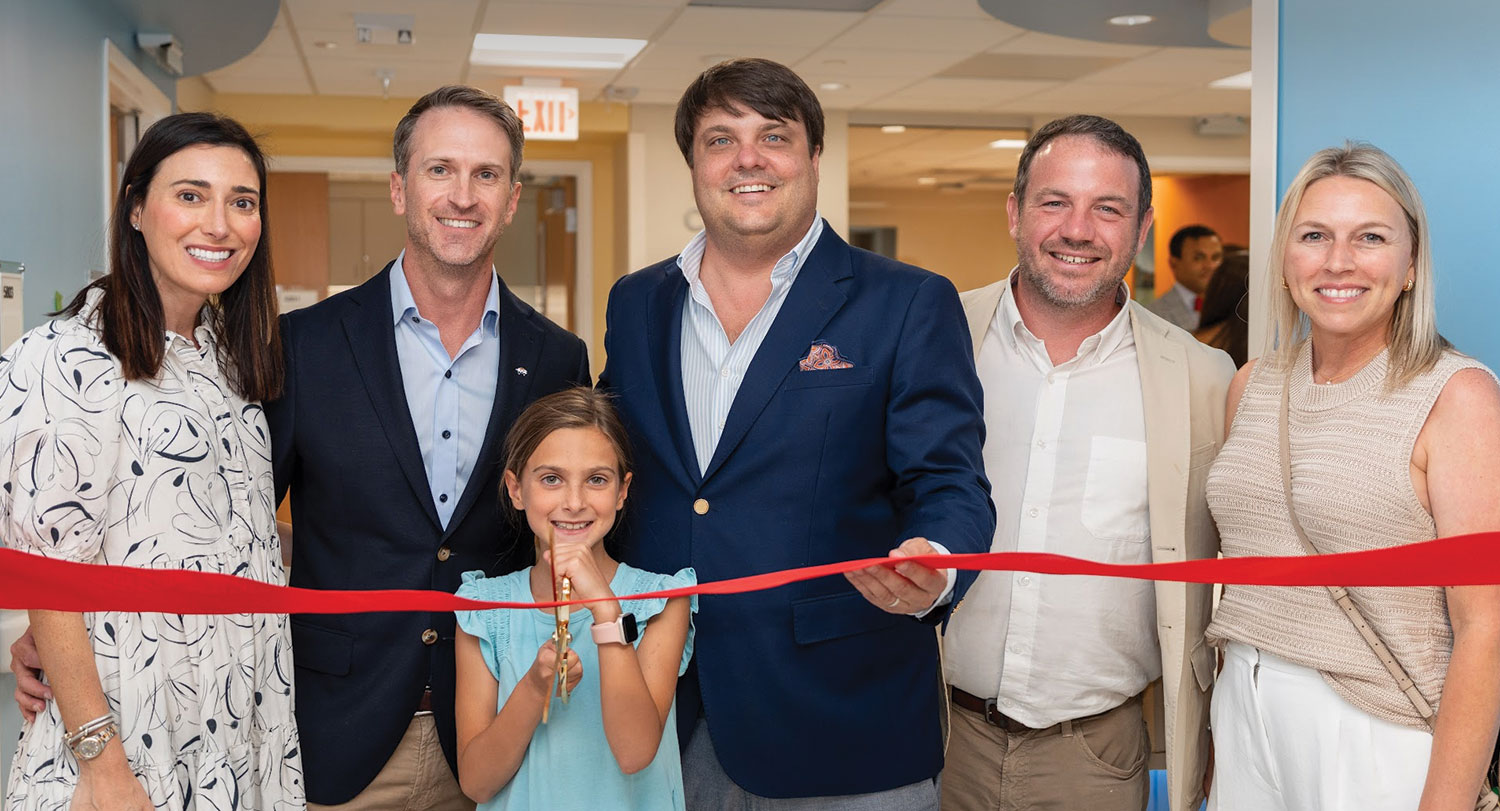
This summer, Hogs for the Cause celebrated the opening of the Hogs for the Cause Pediatric Hematology Oncology Unit at Prisma Health Children’s Hospital-Upstate in Greenville, South Carolina. Two more million-dollar gifts have been announced since: one to East Tennessee Children’s Hospital in Knoxville and the other to Children’s Hospital Colorado. From left: Brittany and Becker Hall, daughter Josephine Hall, Hogs for the Cause cofounder Rene Louapre, treasurer Zandy Rainold and Lindsay Louapre
Nearly 100 barbecue teams have come for the 2025 festival. The next morning the judges will assemble under the tent outside Hall’s trailer to award winners in 15 categories, ranging from Whole Hog, Ribs and Sauce to Fan Favorite and, most importantly, Fundraising Grand Champion.
It’s one of the highlights of the weekend, but Hall already has one eye on next year. He is determined to raise more money to fund more projects and support more families. He calls it an addiction. It’s also what drives him.
“I remember when we first started Hogs, I was on my balcony and, like, having a moment,” he explains. “I wanted to do something fulfilling. I had that want inside of me. I wanted to honor my mom, who was a very altruistic person, and I wanted to honor this child.”
The gates don’t open until morning, but the pitmasters are already at it. Music drifts across the grounds to Hall’s trailer, voices echo in the night. He takes a sip off another High Life pony and stretches back. The next three days will feel like a marathon — there’s always another fire to put out, and another flame to fan — but right now he’s just taking it all in.
“You know, it all just kind of happened,” he says. “The timing was right. My mom, this 8-year-old child we met, everything at USC and since I came back home — it all came together somehow, and I just devoured it.”
